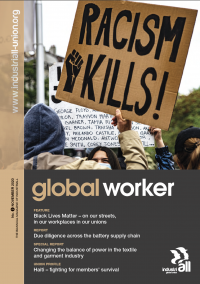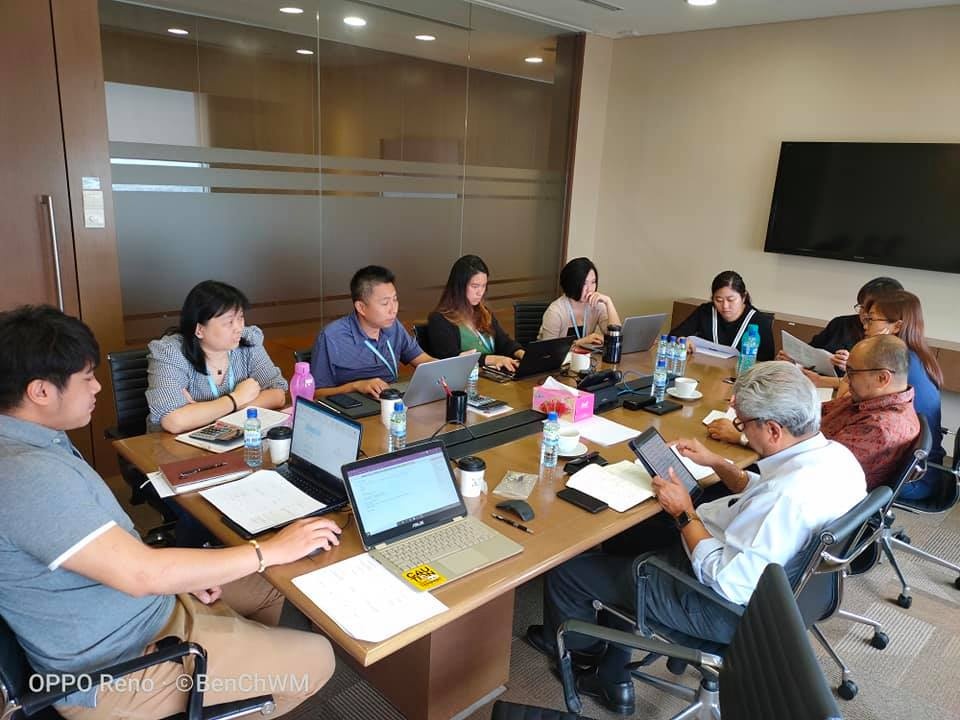11 January, 2021Amid the economic downturn caused by the Covid-19 pandemic, the United Workers of Petroleum Industry of Singapore (UWPI) is negotiating with employers to secure local jobs, reskilling trainings and industry transformation.
UNION PROFILE From Global Worker No. 2 November 2020 | |
 | Text: Yap HWA NG Country: Singapore Union: United Workers of Petroleum Industry of Singapore (UWPI) |
UWPI, founded in 1961, represents thousands of workers from Singapore’s oil and gas industry. There are 35 companies under UWPI umbrella, mainly petrochemical and chemical companies, storage terminals, aircraft refuelling services and energy related companies. The companies include Mitsui Phenol, Chevron Oronite, AkzoNobel, Bp, Infineum, Oiltanking Terminal, Ecogree Oleochemicals and others.
Oil demand in Singapore has dropped drastically since beginning of April, largely due to a reduced consumption of fuel by aircraft and private vehicles caused by the pandemic.
Aware of the declining demands and its potential impact on workers, UWPI took the initiative to discuss matters with the employers in the petroleum-related industry.

Seah Keng Tia, UWPI vice president
Seah Keng Tia, UWPI vice president, says:
As a union, our first priority is job security. Our members do not mind redistributing the workload among a smaller amount of staff, but the employers must be open about how they are planning the operations and provide reskilling for workers tasked with new responsibilities.
While some companies promised to keep local jobs, they were considering reducing the number of migrant workers and cutting any unnecessary cost. That meant requesting local workers to share the manual workload when the number of migrant workers was reduced.
UWPI accepted the proposal to from the employers as a way of retaining the jobs for local workers.
Collective bargaining
Before the rounds of collective bargaining every three years, UWPI looks at market trends and proposes new skills needed. The union also looks into the welfare and needs of workers, subject to company affordability.
Although the collective agreements are signed with individual companies, as the national union, UWPI oversees all terms and conditions and shares proposals with members companies to help maintain market standards.
Industry transformation, work arrangement and training committees are frequently discussed, once the discussions have reached far enough, they are included in the collective agreement.
“Right now, our members’ main concerns are to prevent retrenchment or a change of working conditions during the Covid-19 pandemic. We are working with companies to avoid retrenchment, reskill workers and relocate them to other work areas where possible. So training and reskilling is important and we help the employer to identify courses available.”
“We are also discussing flexible work arrangements to minimize workers’ exposure to Covid-19,”
says Seah Keng Tia.


